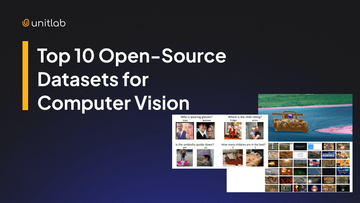A data annotator is the person who annotates data, typically for AI/ML models. In our previous article, we covered the data annotation job, its requirements, responsibilities, key skills, and essential business tools. We also gave prospective data annotators a glimpse into what they could expect from the role, complete with visual examples.
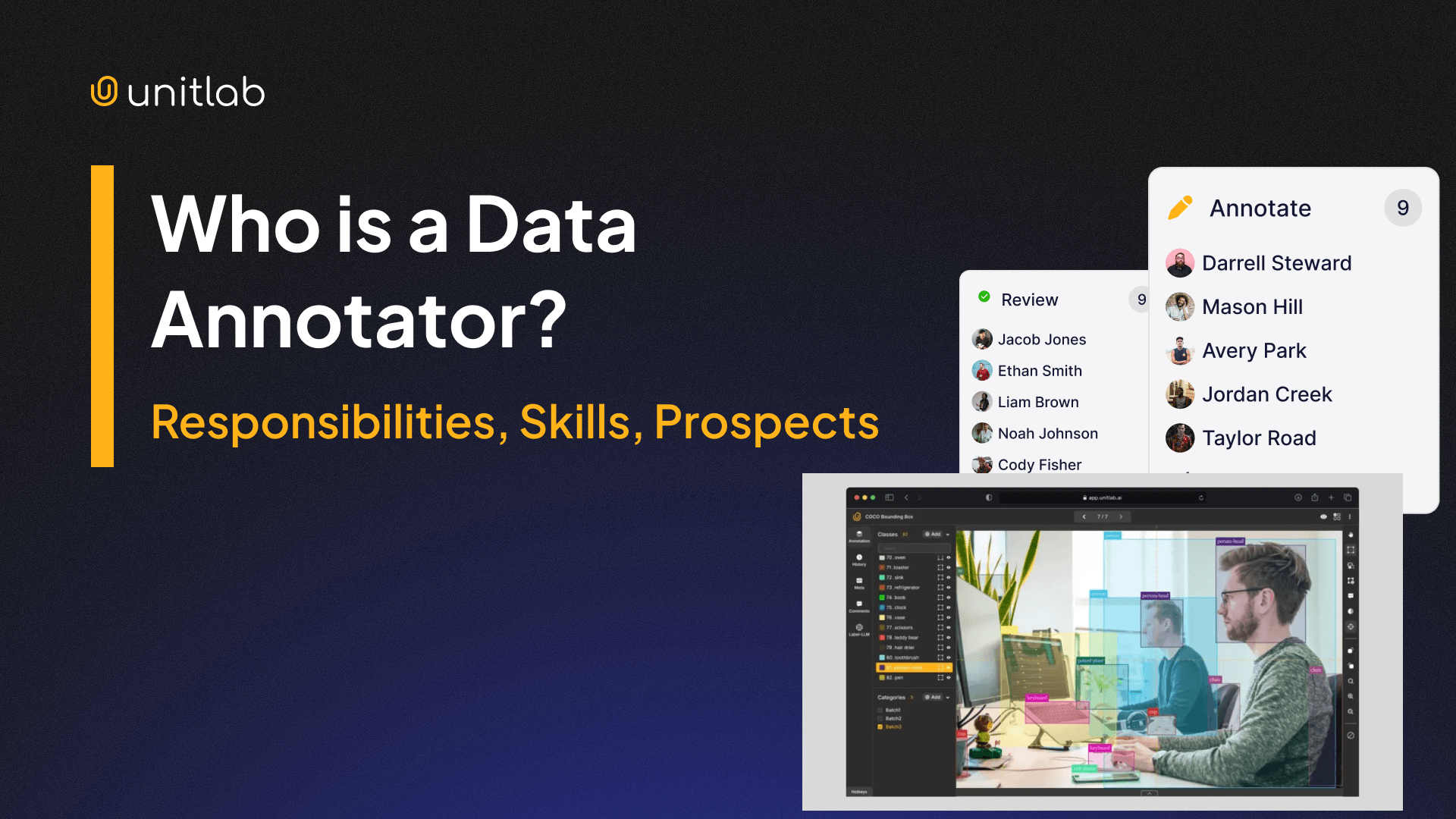
Data Annotator | Unitlab Annotate
This post goes further, diving into how to land these jobs, the benefits they offer, evolving trends in the field, and the abundant career opportunities within the data labeling landscape.
Job Description
The data annotation job originally emerged from the critical need for high-quality, accurately labeled data to train AI/ML models. However, this role often has low entry barriers, meaning you don't need extensive prior expertise; most individuals proficient with computer tools can take on data annotation tasks.
That said, it's important to distinguish between general and domain-specific data labeling. In the first category, the general public can participate because data to be annotated are common and widely accessible. In comparison, domain-specific data annotators are professionals with specialized domain expertise; they can annotate data for research purposes or as an additional source of income.
Despite the differences, the general job description for both categories is somewhat similar, with domain expertise being the key differentiator.
Here's a LinkedIn job advertisement for a general data annotation role:
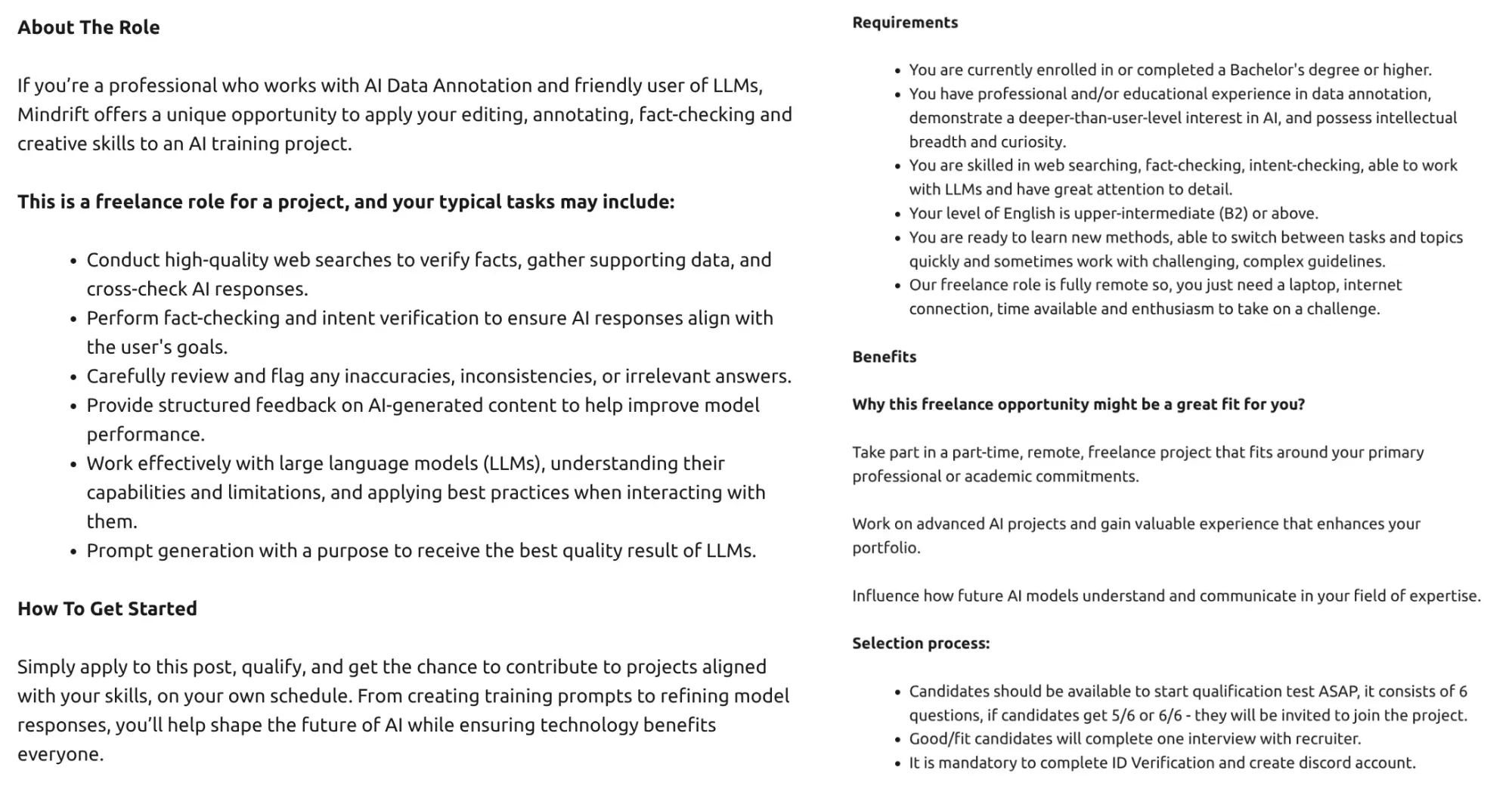
As you can see, the requirements and tasks are generic, making the job accessible to most people. Consequently, the compensation isn't particularly high. Special skills, high pay.
By contrast, here's an example of a domain-specific job at Tesla. This role requires specific experience but offers a significantly higher compensation:
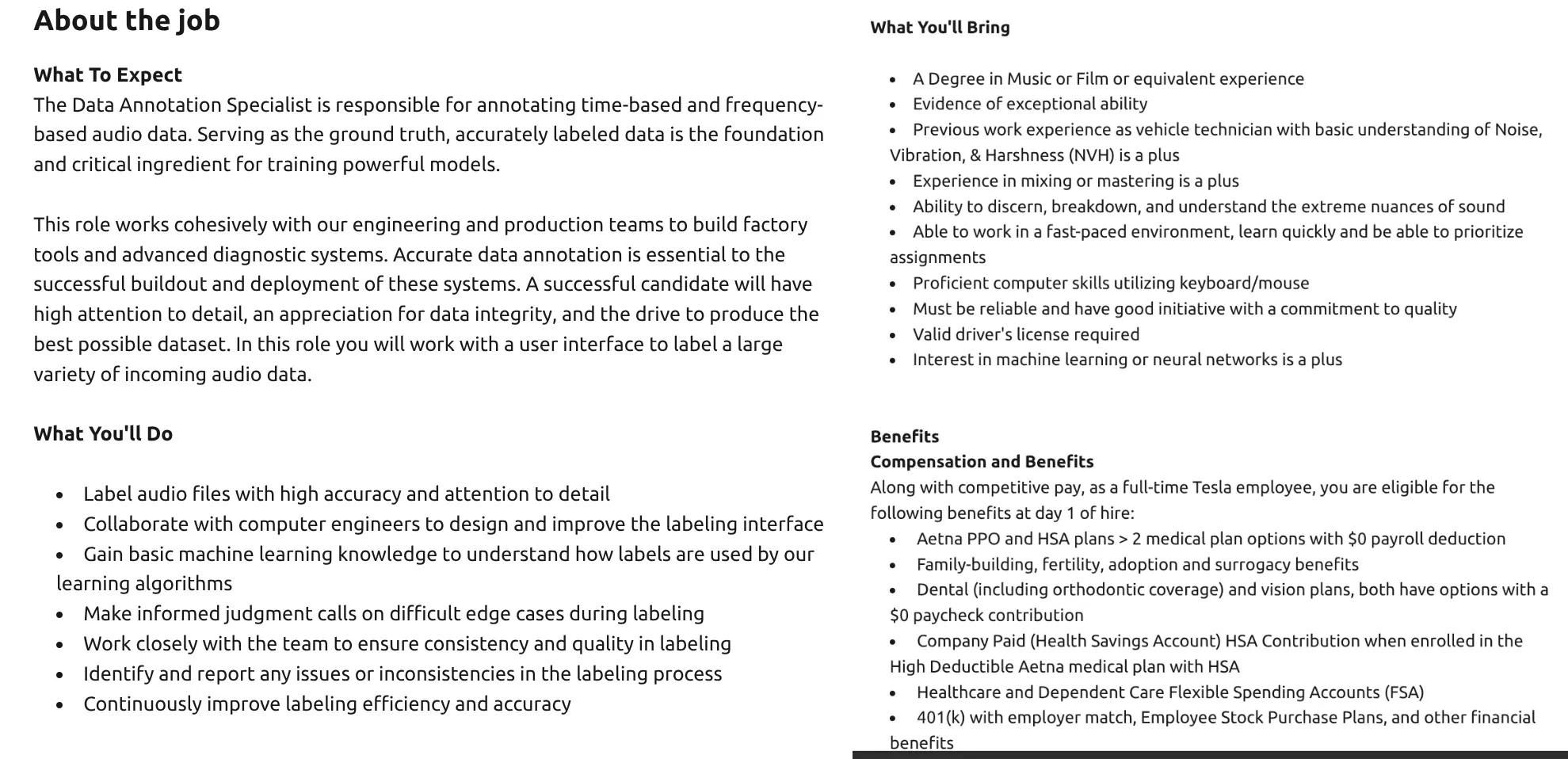
In general, generals skills required for data labeling include:
- Technical Literacy
- English
- Attention to Detail
- Patience and Consistency
If you add domain knowledge in fields such as medicine, law, or mathematics, your earning potential increases significantly.
Compensation
As with any job, your exact compensation will depend on a multitude of factors, including experience, domain, and location. Obviously.
In this field, you are usually paid based on the volume and quality of your work, which incentivizes greater productivity and accuracy. The more you work, the higher the salary. Also, the higher the quality, the better the pay.
Given that data annotation is closely tied to AI/ML, there's a strong market demand for individuals who can annotate data both effectively and quickly.
Competitive Pay: Data annotation jobs offer reasonable salaries, with hourly rates typically ranging from $15 to $70, depending on various factors. As a freelance data annotator, you might even set your own rates.
For more advanced roles that demand expertise and industry knowledge, such as a medical data annotator, annual salaries are significantly higher. These positions often feature transparent pay structures and virtually unlimited earning potential based on your output.
Market Growth: The global data annotation market is experiencing rapid expansion. Projections indicate it will reach $3.4 billion by 2028 for tools and $8.22 billion overall by 2028, underscoring a robust increase in job opportunities.
Opportunities
While data annotation is often associated with freelance work, the opportunities within this field are remarkable. Career paths include:
- Entry Point to AI/ML: Data annotation serves as an excellent starting point for individuals seeking to enter AI/ML. It provides firsthand experience with how machine learning models learn, paving the way for more advanced roles.
- Career Advancement: With greater experience and skills come greater opportunities. Data annotators can transition into specialized or managerial positions, such as Senior Data Annotator, QA Lead, or Project Manager. If you possess relevant domain knowledge, you'll find yourself in high demand.
- Remote Work Flexibility: A major advantage of most data annotation jobs is their remote, results-based nature. If you're a productive individual, you can complete your tasks from the comfort of your home, eliminating the need to commute to an office. This flexibility fosters a healthy work-life balance, saves time, and frees up time to acquire other professional skills.
Here is a success story of a medic professional in Data Annotation Tech (there are a lot more):
Working with DataAnnotation has been a great way to make some extra money in my free time while I prepare to graduate med school.
The projects are interesting and interactive, there is often unlimited work, and the pay is great!
Entering Data Annotation
Entering any specific job market for the first time is daunting. If you're employed by a company that provides data annotation training, you've struck gold; you can earn, learn, and grow simultaneously.
However, for most data labelers, especially those engaged in remote freelancing, this isn't usually an option. Fortunately, we've found a helpful YouTube video on this topic and summarized its key points below:
7 Best Data Annotation Jobs To Make Money in 2025
If you're starting out as a freelancer, you'll first need experience to secure genuine freelance work on platforms like Fiverr or Upwork. You can begin building that experience today on the following crowdsourcing platforms:
- Telus Digital: It offers location-based jobs after extensive testing and training, making it a good place to learn data annotation.
- AudioB: A platform exclusively focused on audio annotation. You'll work on audio transcription, segmentation, and interpreting.
- Appen: A global community of a million data annotators who earn money by completing remote tasks. You can choose tasks based on your interest and experience.
- Outlier: Another popular platform for freelance data annotators. Note that it may not operate in some countries.
- Remote Tasks: A platform where freelancers select and complete remote tasks. It may not operate in some countries.
- Click Worker: A crowdsourcing platform where individuals can earn money by annotating data.
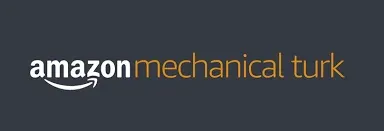
- Amazon Mechanical Turk: A highly popular crowdsourcing platform by Amazon where people can earn money online by completing various tasks, including data labeling.
- Toloka AI: A data annotation platform where labelers can earn money by participating in projects.
- Data Annotation Tech: A data annotation crowdsourcing platform that pays annotators hourly.
Conclusion
The data labeling job is a versatile task accessible to individuals without extensive specialized skills. However, if you possess relevant, specific domain expertise (such as in physics, law, or medicine) you can earn substantially on the side.
This role is characterized by its productivity-based compensation; the more you work, the more you earn. After gaining experience, you can leverage your skills to transition into related fields, such as QA Lead, or advance to higher-paying, higher-status roles like Senior Data Annotator.
In this job, you're essentially your own boss. We've explored nine platforms where you can learn and advance in data annotation before embarking on your freelance journey on popular websites like Upwork or taking a job at a research institution or a corporation.
Explore More
Check out these resources for more on data annotation:
- Who is a Data Annotator in 2026?
- Four Essential Aspects of Data Annotation [2026]
- Data annotation: Types, Methods, Use Cases
References
- Hojiakbar Barotov (Mar 15, 2025). Who is a Data Annotator? Unitlab Blog: Source
- Michael Abramov (Jan 14, 2024). Career Opportunities in Data Annotation. Keymakr Blog: Source
- Maxim Dupont (Jan 26, 2024). Data Annotator Careers: Opportunities and Growth Prospects. Labelvisor: Source
- Maxim Dupont (Jul 3, 2024). Navigating the Trends: Data Annotation Jobs in 2024. Labelvisor: Source

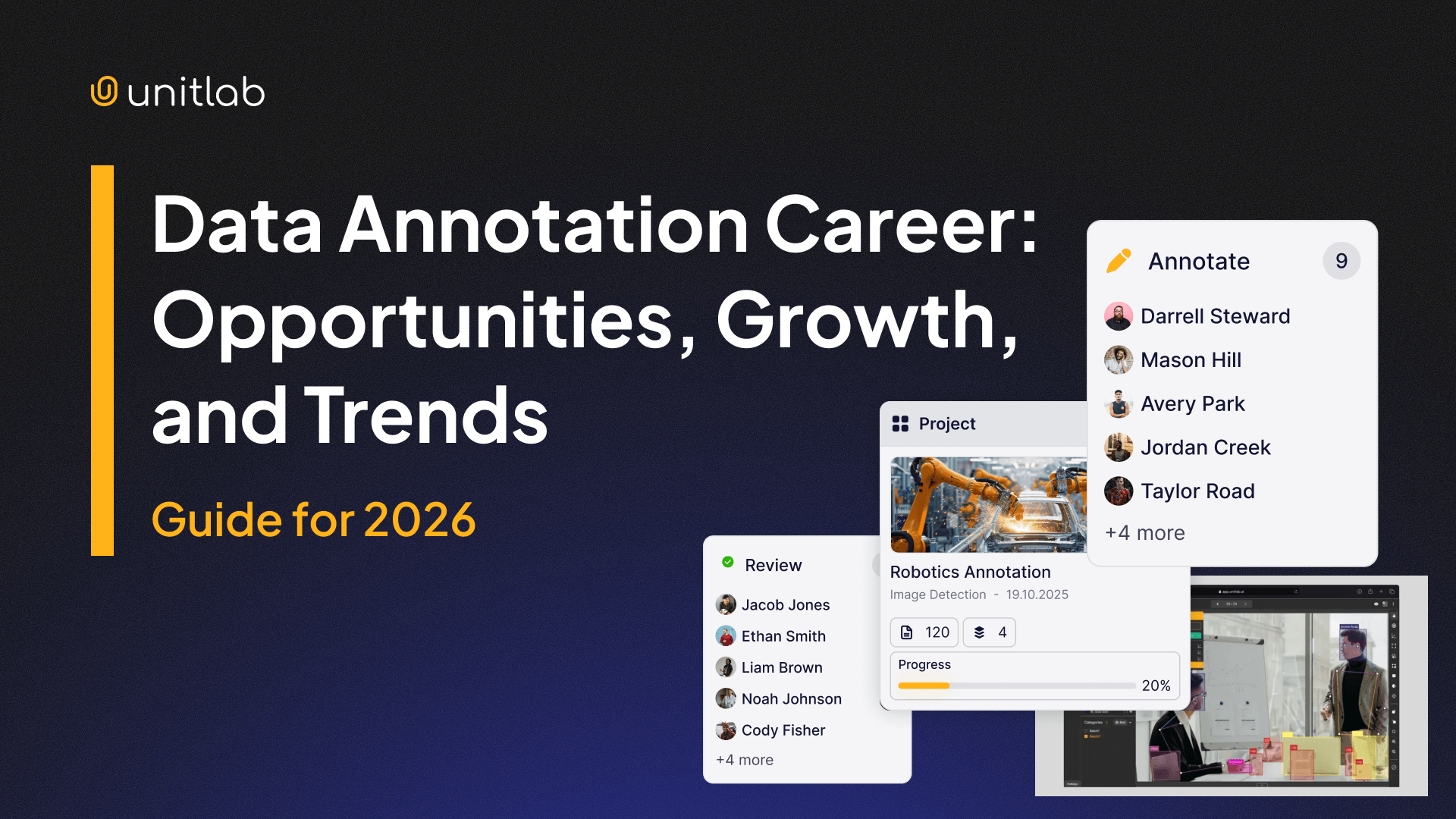

![How to Scale Data Annotation Processes? [Updated 2026]](/content/images/size/w360/2025/12/Scaling.png)
